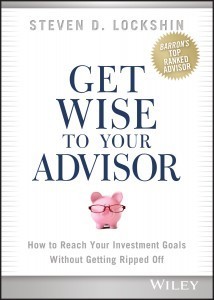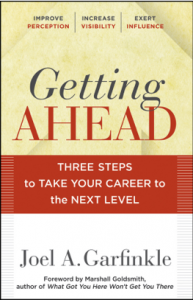Daniel H. Pink's Blog
March 21, 2016
Pinkcast 4. Advice from Bob Sutton: Do people leave encounters with you with more energy or less?
Rob Cross’s research: What Creates Energy in Organizations? | Charged Up: Managing the Energy That Drives Innovation.
Bob Sutton’s last 3 books: Scaling Up Excellence: Getting to More Without Settling for Less (Amazon | BN | IndieBound); Good Boss, Bad Boss: How to Be the Best and Learn From the Worst (Amazon |BN |IndieBound); The No A**hole Rule: Building a Civilized Workplace and Surviving One That Isn’t (Amazon |BN |IndieBound).
Bob Sutton’s 12 Books That Every Leader Should Read.
March 10, 2016
Beta test 3. Why you should take notes by hand
The underlying research: The Pen is Mightier Than the Keyboard: Advantages of Longhand Over Laptop Notetaking by Pam Mueller at Princeton and Daniel Oppenheimer at UCLA.
Articles on the Mueller-Oppenheimer research: Scientific American, Harvard Business Review, APS News.
My favorite paper notebooks: Field Notes
My favorite source for pencils: CW Pencil Enterprise
I process my handwritten notes using a slightly modified version of the Getting Things Done approach.
February 23, 2016
Protected: Pinkcast 1: My go-to productivity trick
This content is password protected. To view it please enter your password below:
Password:
October 22, 2013
Interview with Steven D. Lockshin, author of Get Wise to Your Advisor
 All of us could use some advice on how to manage our finances. But Steven D. Lockshin says we ought to heed a billboard-sized warning: Be careful out there.
All of us could use some advice on how to manage our finances. But Steven D. Lockshin says we ought to heed a billboard-sized warning: Be careful out there.
“[T]he financial advice industry,” he says in his important new book Get Wise to Your Advisor: How to Reach Your Investment Goals Without Getting Ripped Off , “has more built-in conflicts of interest than almost any other industry.”
, “has more built-in conflicts of interest than almost any other industry.”
Lockshin knows whereof he speaks. He’s consistently been one of the top-rated financial advisors in the country by Barron’s and for 20 years he ran his own fee-only, conflict-avoiding advisory firm. Now he’s helping the rest of us figure out whom we can trust for honest guidance about money matters.
Because the book was so revealing, I asked Lockshin to answer some questions about his book for readers. He’s also provided an outstanding 8-page PDF on the questions you should ask anyone aiming to give you financial advice.
At the heart of the book is the distinction between advisors who must meet a “suitability standard” and those who must meet a “fiduciary standard.” It sounds a bit wonky, but it’s a big deal. Explain.
Advisors who must meet a “suitability standard” are required only to offer advice that’s suitable for their clients, which means they can suggest products that earn them big commissions but that aren’t necessarily the best choice for the client. Financial advisors who must meet a “fiduciary standard” are legally obligated to put their clients’ interests first.
Think of it this way. Some advisors say, “If there are two products and they’re both decent, I’ll always select the one that pays me more.” But others say, “If there are two products to choose from and they’re both similar and appropriate, I’ll always select the one that costs the client less.”
Ok. So how do I determine which is which?
In its simplest form, a fiduciary – a true steward of your financial well being – will always place your interests first. Full stop. Any conflict of interest should be a yellow (if not a red) flag that your advisor may be tempted to put their interests before yours.
What else should we be looking for in an advisor?
Make sure your advisor has the skills and qualifications to meet your needs. Check his or her violations history through FINRA’s or the SEC’s website and ask lots of questions to understand the advisor’s level of education and experience in the financial services industry. You’ll be surprised to know that there are almost zero education requirements to become a financial advisor.
Do all of us really need an advisor? Can’t we do a lot of this work online on our own?
It’s possible to handle your investments and savings on your own, provided you possess one important skill – discipline. There are also online solutions like Betterment.com or Wealthfront.com and others that automate investing and savings for you at a fraction of the cost of retail advisors – and do it quite well! However, here’s the key: The math is simple, but the emotion and discipline are not. Much like dieting, most of us know what to eat and how to exercise; yet we often need a trainer or dietician to assist with our discipline. A good financial advisor can help with that discipline.
What’s one thing Pink Newsletter readers could do today to improve their chances of successfully navigating their financial futures?
Probably the most important thing is making an honest assessment of one’s current situation. Ask a few really simple, but extremely important, questions. For example:
1) Am I disciplined about my financial planning process or do I rely on someone else to do my thinking for me?
2) Do I truly understand what I am paying in fees?
3) If I do rely on someone else, am I confident that person is dedicated to meeting my needs without any economic conflicts of interest that could get in the way?
4) Have I religiously searched for the best advisor to meet my needs by asking tough questions rather than making an emotional decision?
For more, check out the book Get Wise to Your Advisor: How to Reach Your Investment Goals Without Getting Ripped Off and this free PDF on the questions you should ask any prospective advisor.
and this free PDF on the questions you should ask any prospective advisor.
September 12, 2013
How to get ahead: 5 questions for Joel Garfinkle
 Not everyone craves the proverbial key to the executive washroom, but nearly everyone wants to have influence in their workplace, have others think well of them, and attain success in a way that’s meaningful to their lives. Joel Garfinkle has coached countless executives in how to reach their goals, and now he’s written a book called Getting Ahead (which you can buy at Amazon, Barnes & Noble, Indiebound, or 800CEORead) so that anyone can take his proven methods and use them to boost their own career.
Not everyone craves the proverbial key to the executive washroom, but nearly everyone wants to have influence in their workplace, have others think well of them, and attain success in a way that’s meaningful to their lives. Joel Garfinkle has coached countless executives in how to reach their goals, and now he’s written a book called Getting Ahead (which you can buy at Amazon, Barnes & Noble, Indiebound, or 800CEORead) so that anyone can take his proven methods and use them to boost their own career.
Because his book addresses such core desires, I’ve asked Joel to answer a few questions about the book and his work as an executive coach. Here are his answers:
1. In Getting Ahead you coach readers through three steps that are necessary to career advancement: improving other peoples’ perceptions of us, increasing our visibility, and exerting influence. In your experience, what holds otherwise high-achieving people back from taking these steps?
Many of my clients protest that they’re ‘‘too busy’’ to make the effort to bring perception, visibility, and influence into their work lives. They are consumed by and can barely keep up with their daily responsibilities. They oversee too many projects and have extensive to-do lists. They have seemingly endless meetings and are overwhelmed by e-mails. Well, let me ask: Do you think that leaders of large organizations receive fewer e-mails than you? Do they have fewer projects to work on, or shorter to-do lists? No. The difference is that they take time to prioritize perception, visibility, and influence. Despite the sense of urgency and importance that these demands provoke, these leaders still are able to make perception, visibility, and influence a vital part of their professional lives.
2. In the chapter on improving one’s image, I like your emphasis on getting constructive feedback from others. What do you think is the most painless (or least painful) way to go about doing this?
Many people are afraid to ask for constructive feedback. You may worry that you’ll discover something you don’t want to know. It can feel risky and vulnerable to ask how others perceive you. The most painless way to go about asking for constructive feedback is to explain why you are asking for feedback.
Some possible ways to introduce the discussion are:
‘‘I am doing a bit of self-evaluation and looking for some ways to grow my career. I talked to my boss already and felt it would be beneficial to speak to other people with whom I work. I want to know how you think I am performing and what your perception of me is. I value what you have to say.’’
‘‘I know you are someone with whom I work indirectly. I would like to learn about myself and the ways I can improve in this company. I respect you as a person and would therefore appreciate your feedback.’’
‘‘I want to improve my performance. I am asking for honest feedback because I know you are aware of and see things that would be helpful for me to know about.’’
3. If I had to guess, I’d say the chapter on increasing visibility is the one that creates the most anxiety in readers. Nobody wants to be seen as pushy, aggressive, or a credit-hog. What are some ways to cultivate visibility without being obnoxious about it?
Focus on how what you’ve done benefits your group, department, or company. The self-promotion process can often cause you to concentrate on what you’ve accomplished without giving any thought to how it benefits the company or management. A big picture approach can soften the impression that you care more about furthering yourself than you do about your organization’s success. You need to show how what you do benefits other business units, customers, clients, and people above you, below you, and inside your own department.
Have others sing your praises. Have clients, customers, or vendors sing your praises. These groups can share compliments about you via e-mail or voice mail. Whenever you do something positive above and beyond expectations, solve problems, or provide top-notch service, make sure to ask the person you’re serving to tell your superiors (your boss and boss’s boss) about it.
4. Clearly Getting Ahead is relevant to people at the beginning of their working life – but what about people who are nearing the end of their careers? Where could improving perception, visibility, and influence take them?
The book’s third section, on influence, is most relevant to people nearing the end of their careers. As upper executives, you spend most of your time influencing significant results and people’s behavior. By influencing others, you increase your value to the overall organization.
While visibility isn’t as important as it used to be, as a person in upper management, you still need to make sure you have visibility to other executives who identify you as someone who drives the company’s success forward.
5. Your book is packed with tools and tips. What’s one tip Pink Blog readers could use – today – to take themselves to the next level?
Two studies conducted by Cameron Anderson and Gavin J. Kilduff in 2009 found that people who speak up and act dominant will be perceived as competent even if they aren’t. They merely appear so because they believe so completely in their own competence. So what does this teach us? Speak up. Speak first. Speak often. Stop overthinking and delaying what you want to say. Stop being fearful; instead, trust in yourself. Have confidence in your knowledge. Focus more on what you know and less on what others think. Identify two different situations in which you decide to speak up and speak often. You might have to leave your comfort zone, but do it. You’ll be heard and seen as competent, and you’ll notice others’ perceptions of you starting to shift favorably as you contribute more often.
June 24, 2013
How to Pitch Better: The Rhyming Pitch
Here’s the latest in our series of short videos based on Chapter 7 of To Sell is Human. The message of this one: Perhaps it’s time for you to rhyme.
June 10, 2013
How to Pitch Better: The Email Pitch
In the second short video based on Chapter 7 of To Sell is Human, wherein I reveal the six successors to the elevator pitch, we answer this urgent question:
How do you craft an effective email subject line?
May 20, 2013
How to Pitch Better: The Question Pitch
Today we begin a new series of short videos based on Chapter 7 of To Sell is Human, wherein I reveal the 6 successors to the elevator pitch.
Up first is The Question Pitch, which shows when you should use the interrogative to make your case (and when you should avoid it).
May 16, 2013
The 6 essential lessons of a satisfying, productive career
 Just in time for graduation season, Johnny Bunko is here to remind you of the 6 essential lessons of any satisfying, productive career:
Just in time for graduation season, Johnny Bunko is here to remind you of the 6 essential lessons of any satisfying, productive career:
1. There is no plan.
Make decisions for fundamental, not instrumental, reasons.
2. Think strengths, not weaknesses.
What do you consistently do well? What gives you energy rather than drains it?
3. It’s not about you.
The most successful people improve their own lives by improving others’ lives.
4. Persistence trumps talent.
There are massive returns to doggedness.
5. Make excellent mistakes.
Commit errors from which the benefits of what you’ve learned exceed the costs of the screw-up.
6. Leave an imprint.
Recognize that your life isn’t infinite and that you should use your limited time here to do something that matters.
* * * *
Buy the book at Amazon, BN.com, or IndieBound
Watch the classic 2-minute trailer
May 9, 2013
Dan Ariely’s revised model of labor
Below is a fantastic TED Talk from Dan Ariely on why people work hard, when they’re willing to make extreme efforts, and how easy it is to crush their motivation.
Among the insights and provocations:
“Ignoring the performance of people is almost as bad as shredding their effort in front of their eyes.”
“Is efficiency still more important than meaning? I think the answer is no.”
“By getting people to work harder, they actually got them to love what they’re doing to a higher degree.”
Watch and ponder.



